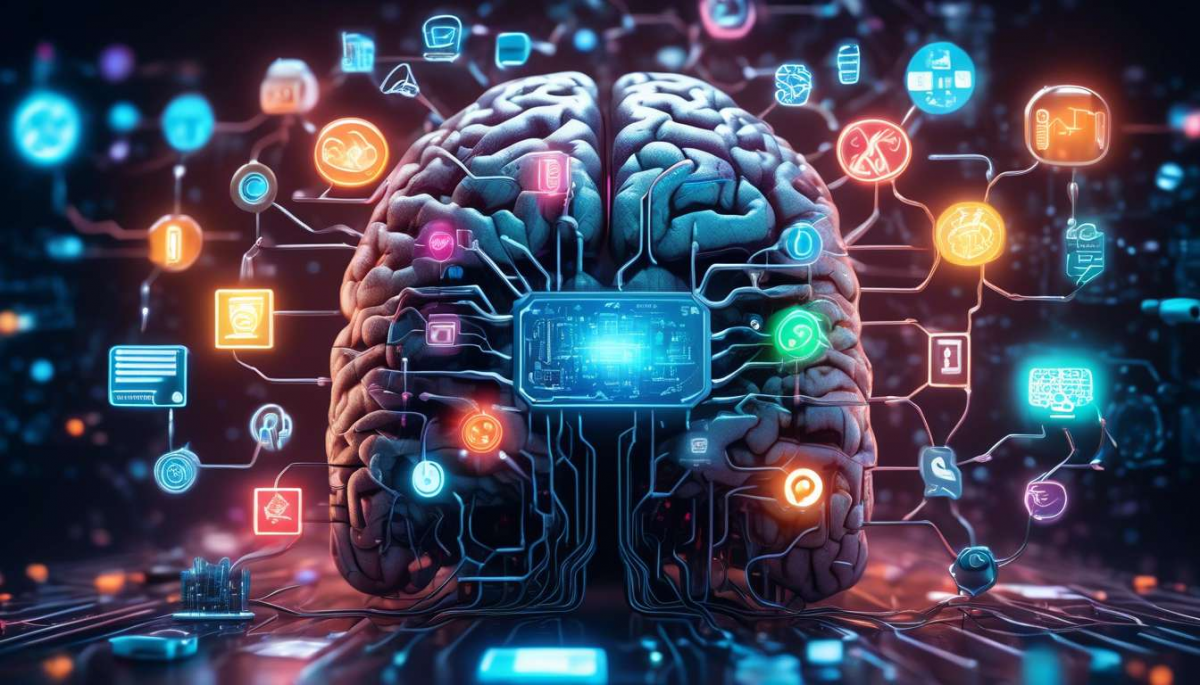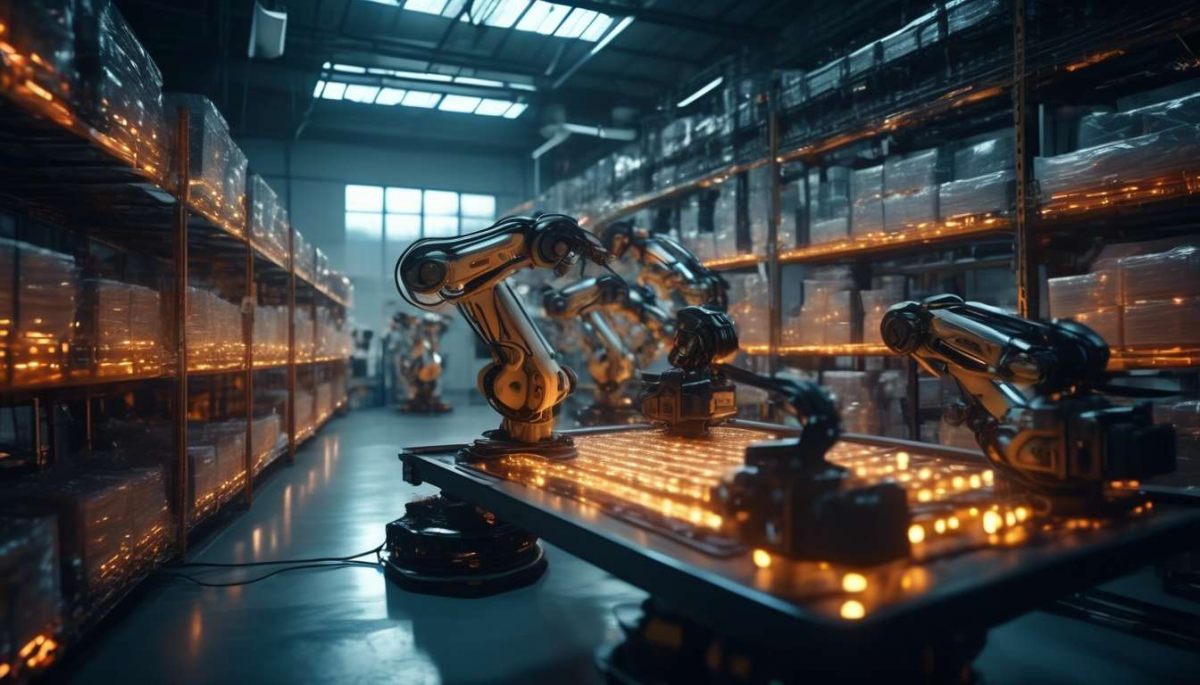The categorization of products using artificial intelligence (AI) has emerged as a transformative approach in various industries, enhancing efficiency and accuracy in product management.

This process involves utilizing advanced algorithms and machine learning techniques to automatically classify products into predefined categories.
Challenges with Traditional Methods:
- As businesses increasingly rely on vast and diverse inventories, traditional manual categorization methods have become insufficient.
- Manual methods often lead to errors and inconsistencies.
Advantages of AI-Driven Categorization:
- AI processes large volumes of data at high speeds, providing precise and consistent categorization.
- Integration of AI in product categorization streamlines operations.
- Facilitates improved inventory management.
- Supports personalized marketing strategies.
- Enhances customer experiences.
Additionally, AI enables companies to quickly adapt to market changes by updating product categories in real-time.
As AI technology continues to evolve, its application in product categorization is expected to further revolutionize the way businesses manage and organize their products, driving innovation and growth across sectors.
For businesses looking to leverage AI for efficient product management, shopedia.com offers innovative solutions tailored to integrate seamlessly with existing workflows.
Importance of AI in Categorization
AI’s Role in Product Categorization
AI plays a crucial role in product categorization by enhancing accuracy and efficiency in sorting and organizing vast amounts of data. In the modern marketplace, the volume of information can be overwhelming, necessitating the need for advanced systems to manage and categorize products effectively.
Key Components:
-
Machine Learning Algorithms:
- Enable systems to learn from data patterns.
- Improve accuracy and efficiency over time.
-
Automation:
- Reduces the manual workload traditionally required for categorization.
- Leads to increased efficiency and a more streamlined workflow.
Benefits of AI in Categorization:
-
Improved Speed and Consistency:
- AI enhances the speed of processing large datasets.
- Ensures precision and consistency across a wide array of products.
-
Organizational Reliability:
- Creates a reliable and organized system.
- Meets the collective needs of businesses and consumers.
Impact on Stakeholders:
By leveraging machine learning and automation, organizations can:
- Achieve optimal efficiency.
- Enhance their ability to serve communities effectively.
- Foster a cohesive market environment that benefits both businesses and consumers.
This technological advancement fosters a sense of belonging among stakeholders, ensuring a seamless and organized approach to product categorization.
Challenges Addressed by AI
AI addresses numerous challenges in product categorization by tackling issues such as data complexity, scalability, and human error.
Data Complexity:
- Machine learning algorithms analyze vast datasets with intricate structures, identifying patterns and relationships that may be difficult for humans to discern.
- This capability enhances the accuracy and consistency of categorization processes.
Automation and Efficiency:
- The automation of categorization tasks ensures that large volumes of products can be efficiently processed without the need for extensive human intervention.
- This efficiency not only reduces the time and resources required but also minimizes the risk of errors that may occur in manual processes.
Scalability:
- As businesses expand and product lines grow, maintaining consistent categorization becomes increasingly complex.
- AI systems can adapt to these changes, scaling operations seamlessly to accommodate growth.
By integrating machine learning and automation, AI fosters a sense of belonging within organizations striving to maintain high standards of accuracy and reliability in categorization, thereby supporting their overarching goals and objectives.

Benefits of AI-Driven Categorization
AI-driven categorization offers significant benefits, including enhanced accuracy, speed, and adaptability in processing vast product inventories.
Machine learning algorithms play a pivotal role in:
- Analyzing complex datasets
- Enabling the identification and classification of products with precision
Automation of these processes reduces the need for manual intervention, allowing businesses to allocate resources more efficiently. This technological advancement fosters a sense of belonging among industry professionals, as it aligns with the collective goal of achieving operational excellence.
Efficiency is further augmented by the system’s ability to:
- Adapt to evolving product categories and market trends
- Ensure businesses remain competitive by swiftly responding to changes in consumer preferences and inventory demands
Additionally, the integration of machine learning enhances the system’s ability to learn from past data, continuously improving its categorization capabilities. This adaptability not only streamlines operations but also cultivates an environment of innovation and growth, contributing to the overarching success of organizations in various sectors.

Future Trends in Product Categorization
AI’s Expanding Role in Product Categorization
AI’s role in product categorization is set to expand, with future trends emphasizing personalized customer experiences and deeper integration with emerging technologies.
Machine Learning Advancements
Machine learning advancements promise to refine categorization processes by:
- Enabling systems to analyze vast datasets.
- Adapting to consumer preferences more effectively.
Automation and Efficiency
Automation will drive efficiency by:
- Allowing businesses to allocate resources away from manual categorization tasks.
- Focusing on strategic initiatives that enhance customer satisfaction.
Integration with Emerging Technologies
The integration of AI with Internet of Things (IoT) devices and augmented reality (AR) is expected to:
- Transform how products are categorized and presented to consumers.
- Facilitate more interactive and immersive shopping experiences.
Fostering Consumer Connections
These technologies will foster a sense of belonging among consumers by catering to individual preferences and needs.
AI-Driven Analytics
AI-driven analytics will provide retailers with actionable insights, enabling them to:
- Anticipate market trends.
- Adjust product offerings accordingly.
Improved Operational Efficiency
As these trends unfold, businesses will likely experience improved operational efficiency, creating:
- A more streamlined and responsive retail environment.
- A retail atmosphere that resonates with consumers on a personal level.
